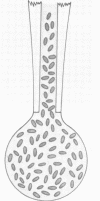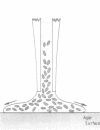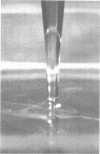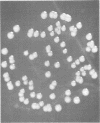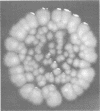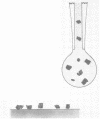Abstract
Droplet plating of 0.01 ml of 10(-2) dilutions of mixed sonically treated urines onto cystine-lactose electrolyte-deficient agar permits formation of discrete, easily counted colonies within a small circumscribed area without interference by Proteus overswarm. Each colony is considered as arising from a single viable cell. The single dilution permits precise reproducible quantitation of urine bacteria population within the range 10(4) to 10(6) cells/ml of sample. Droplet-plated counts were found to be consistently (approximately) double those determined by standard pour plate quantitation. The method requires only inexpensive readily available materials and has been performed routinely in a large-volume clinical laboratory for several years.
Full text
PDF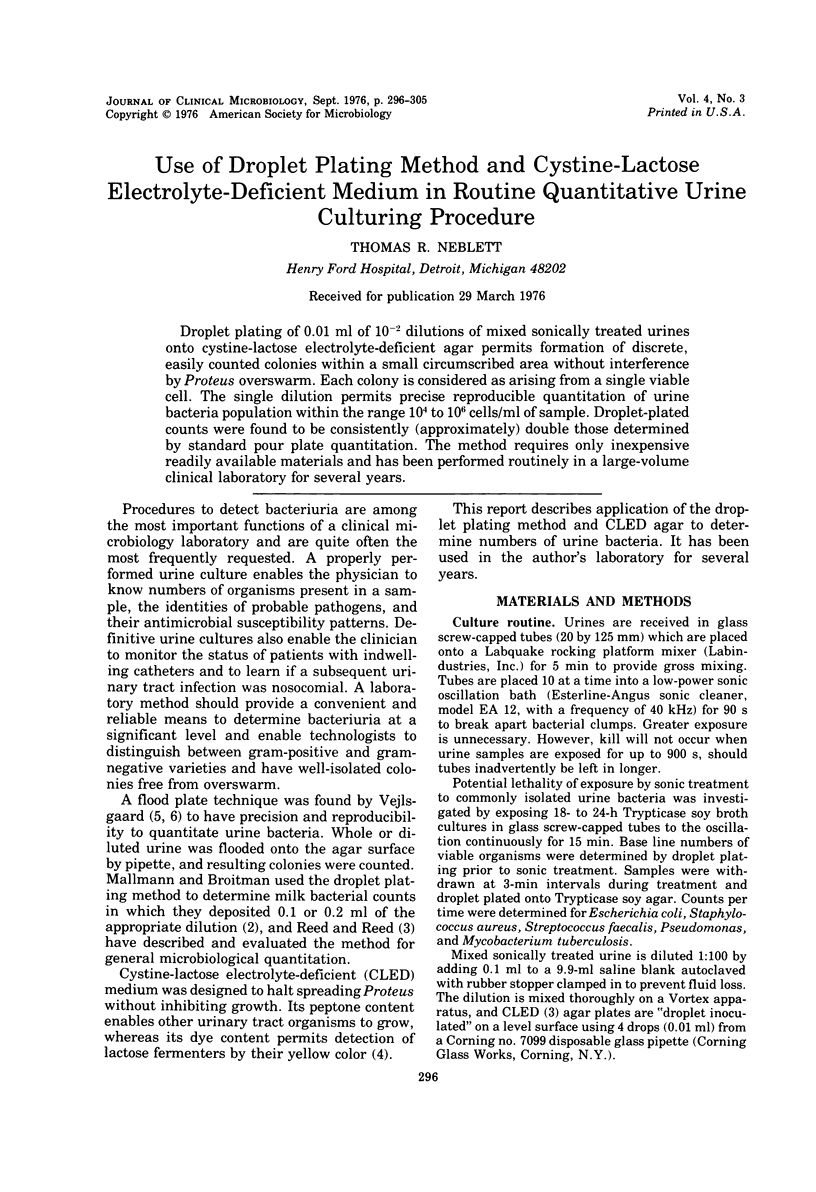
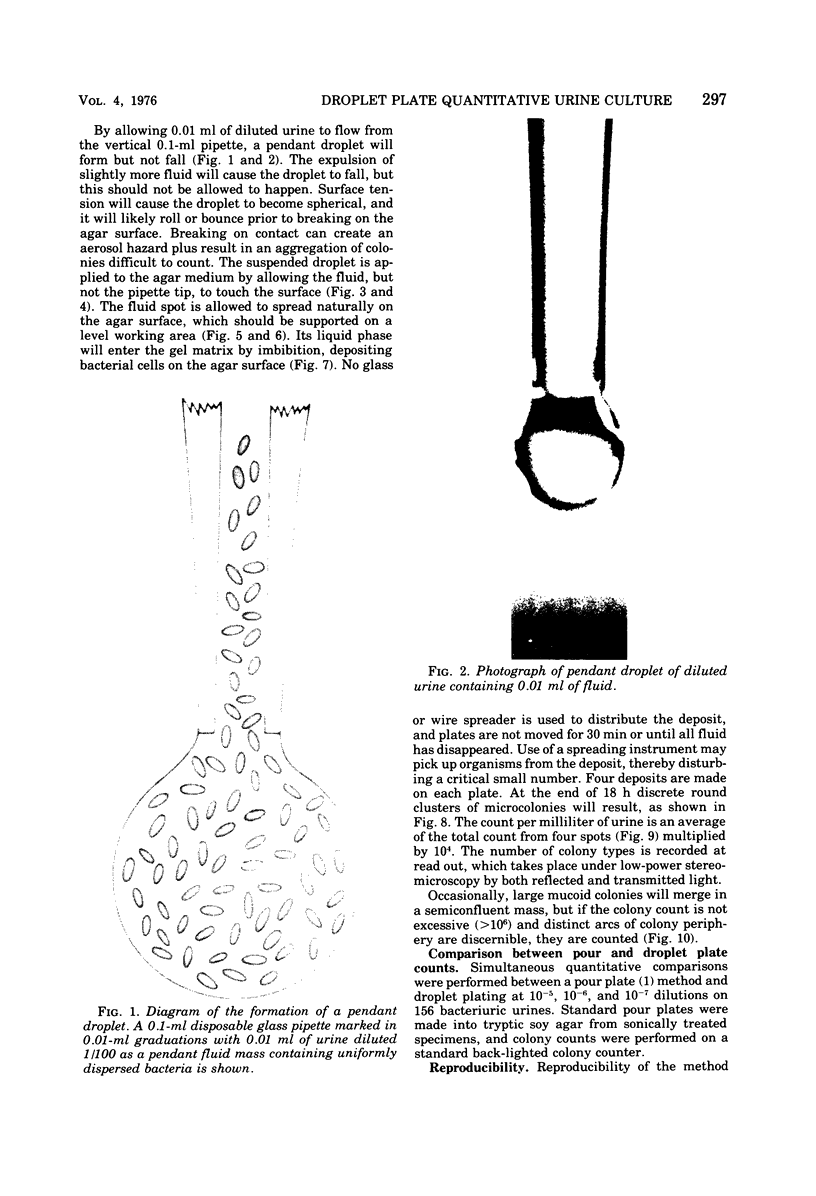
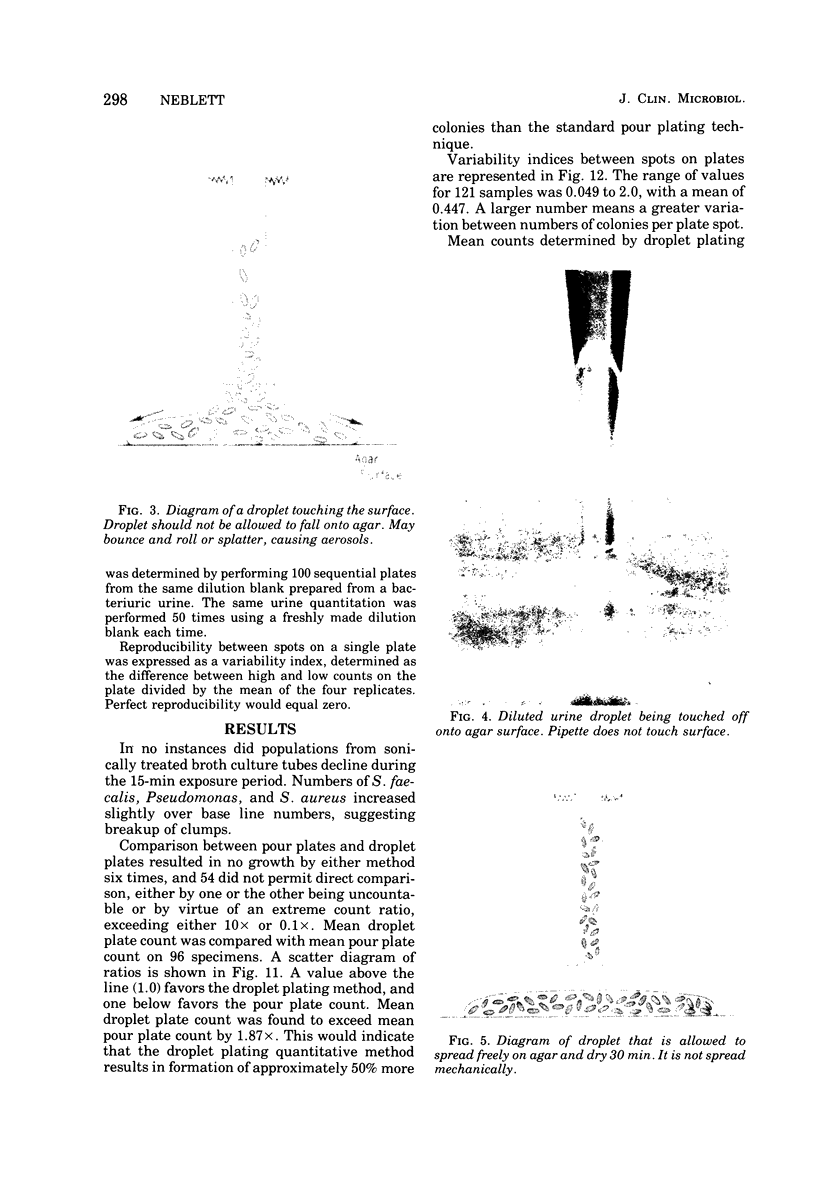
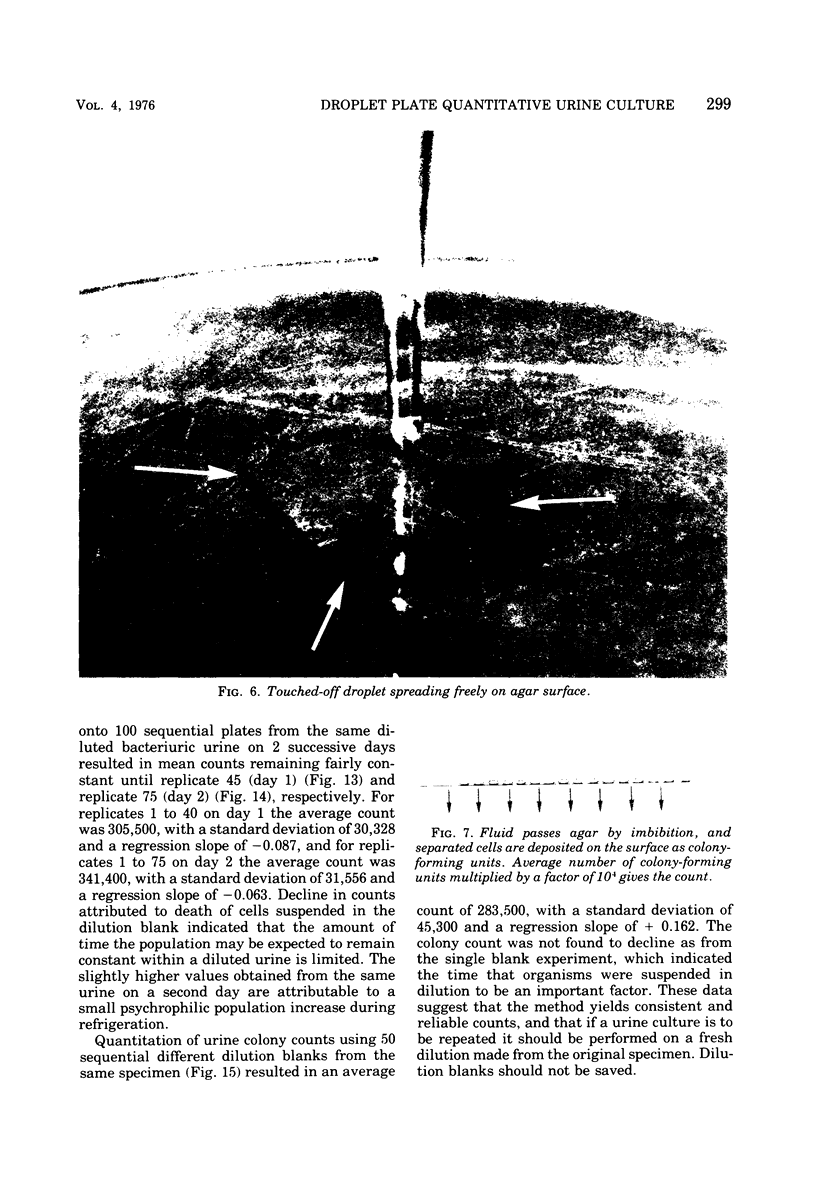
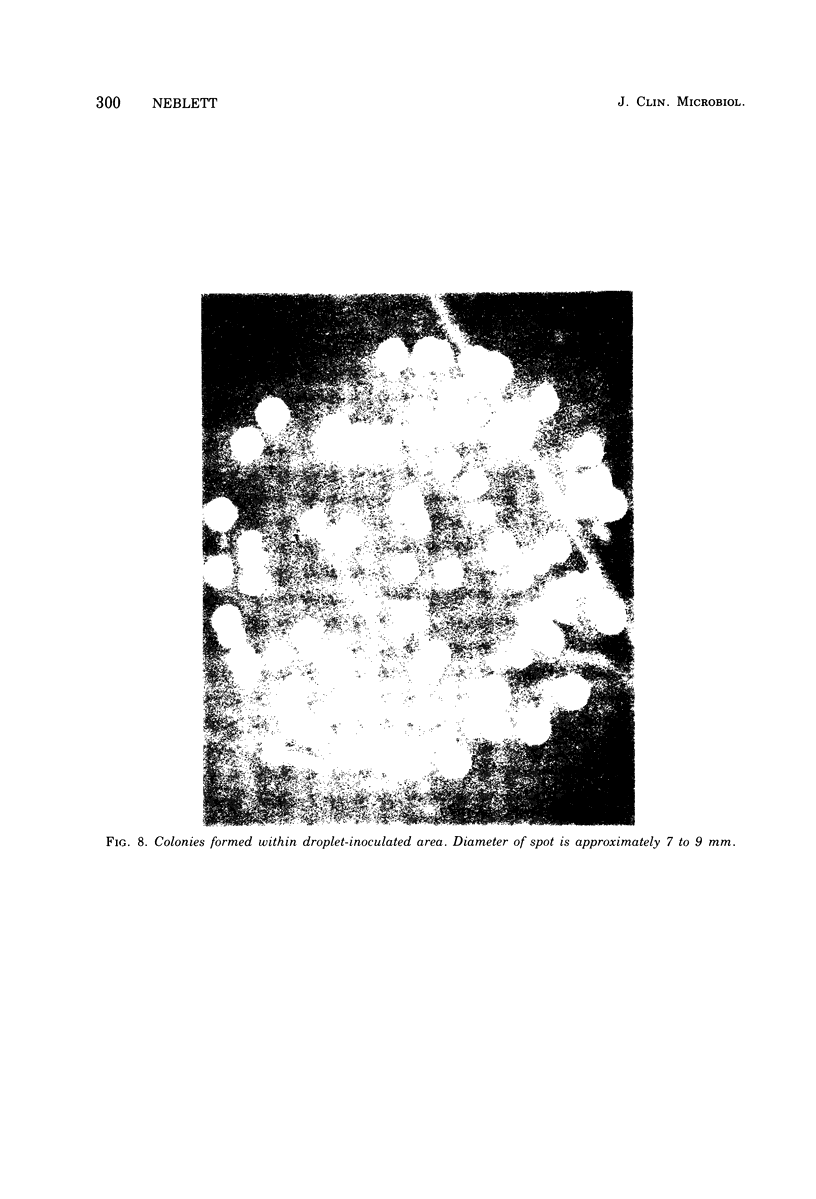
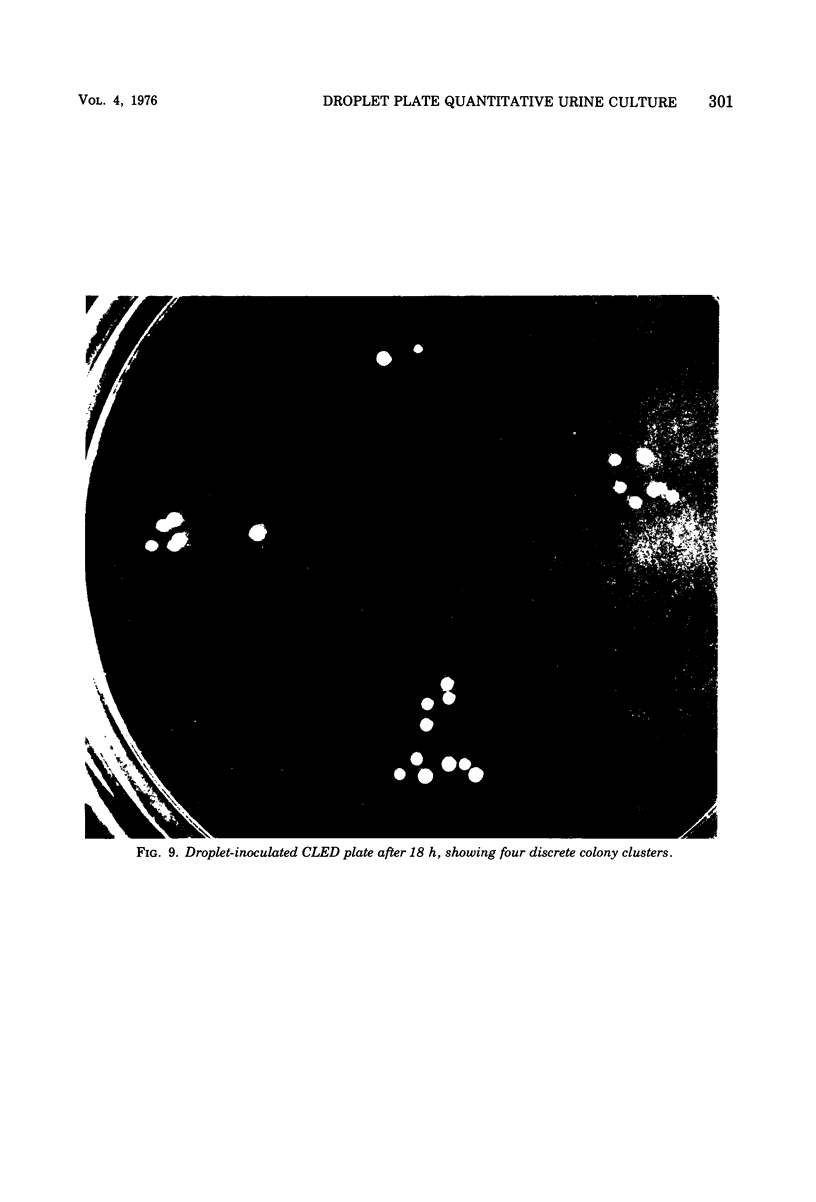
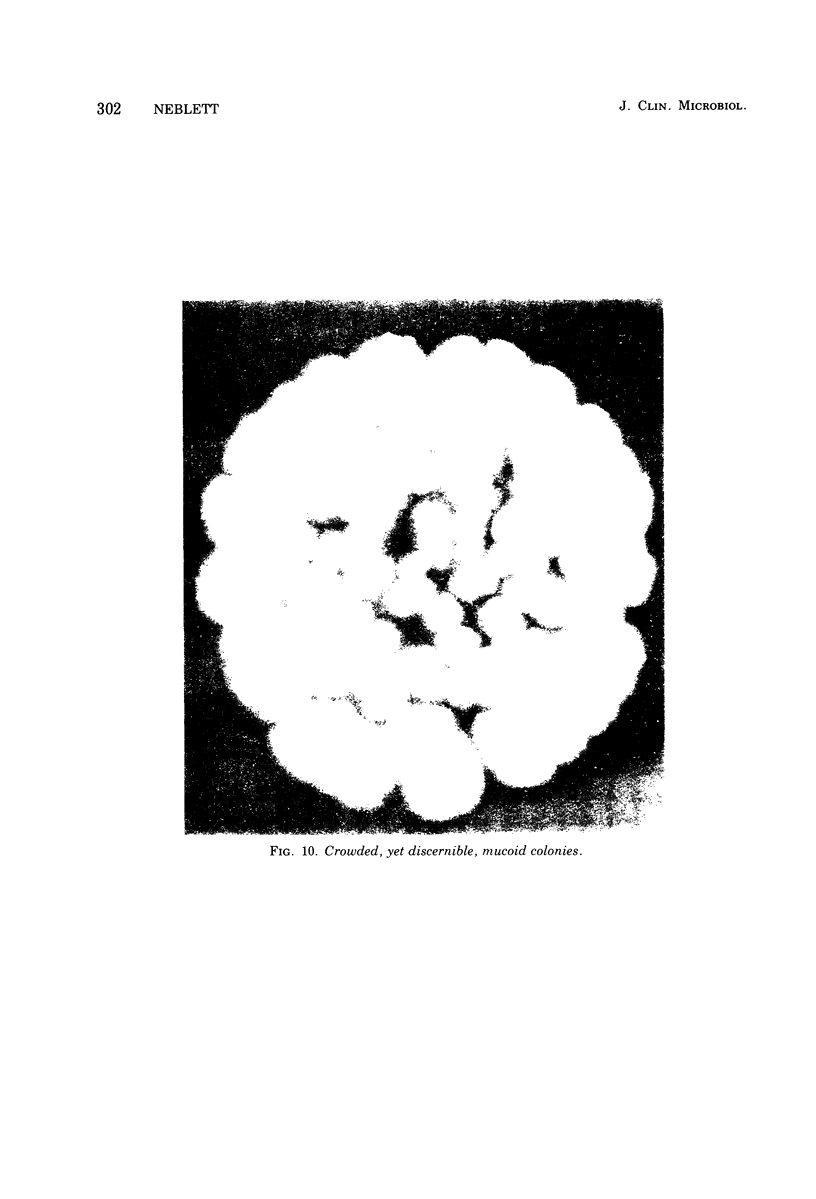
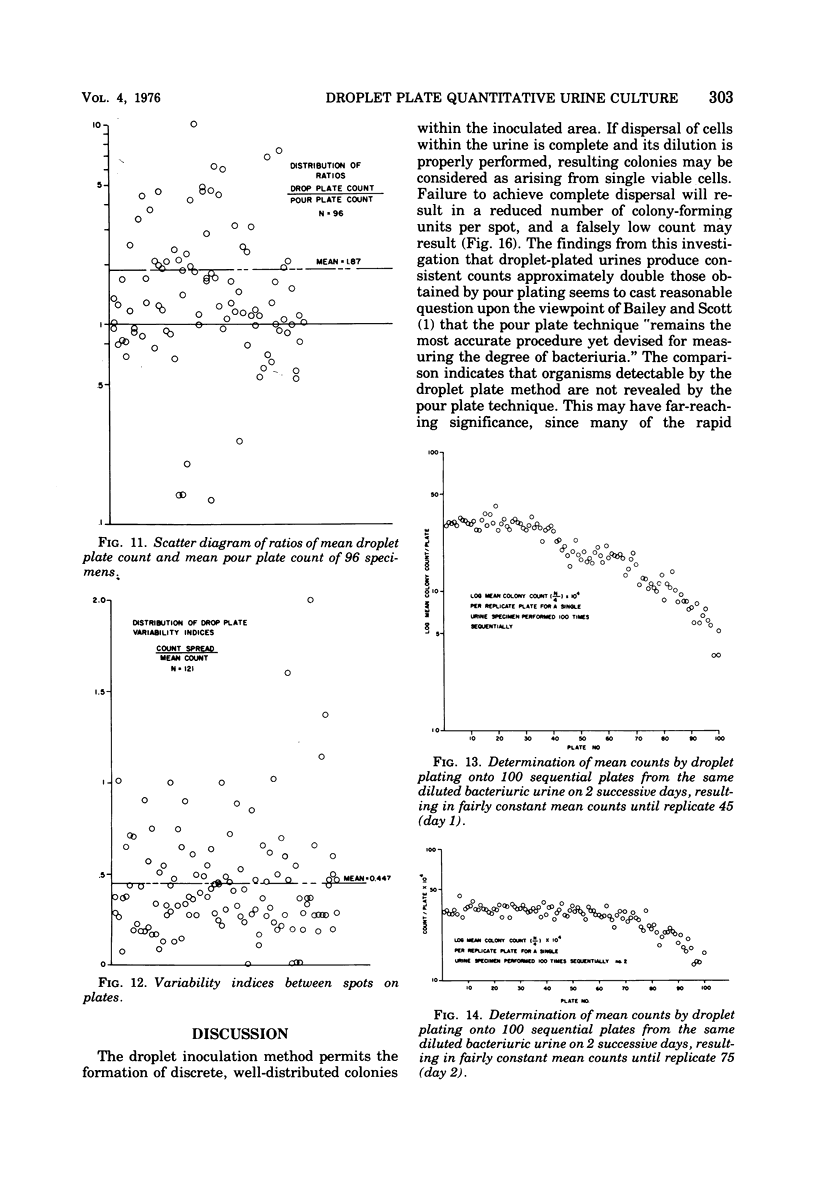
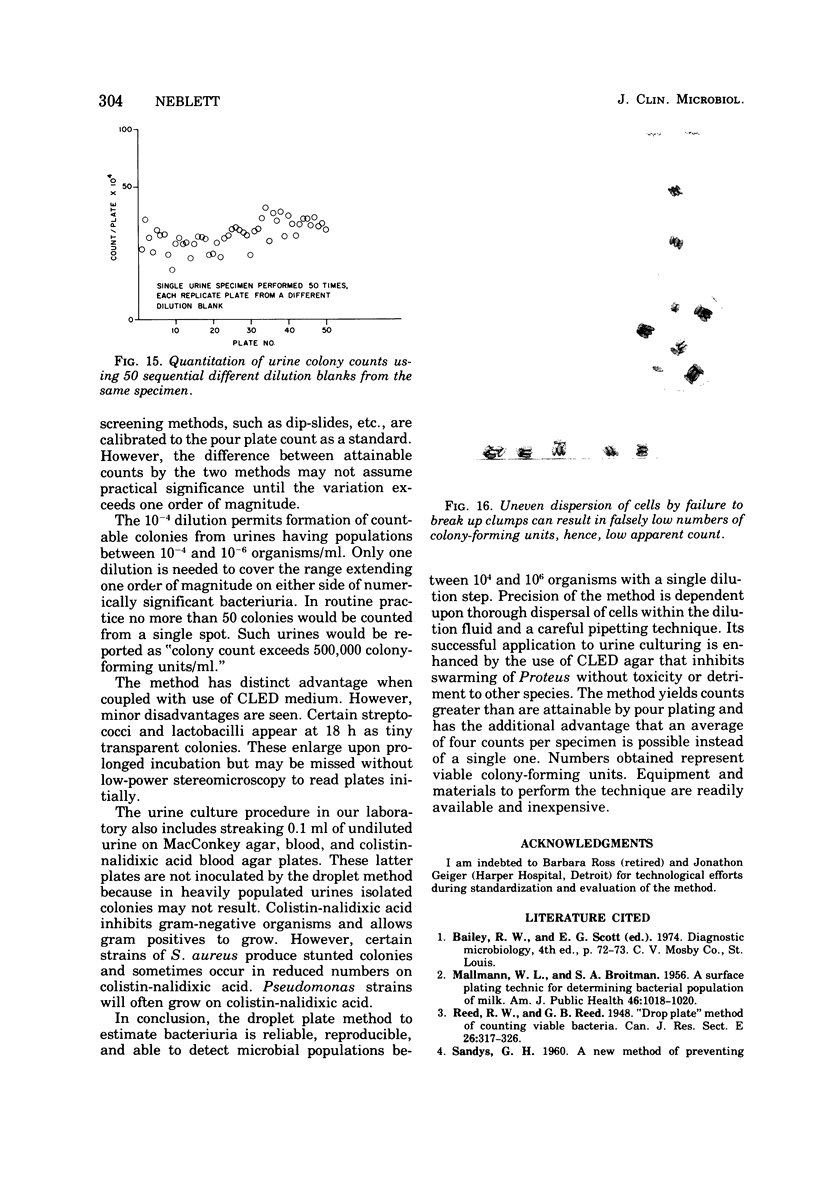
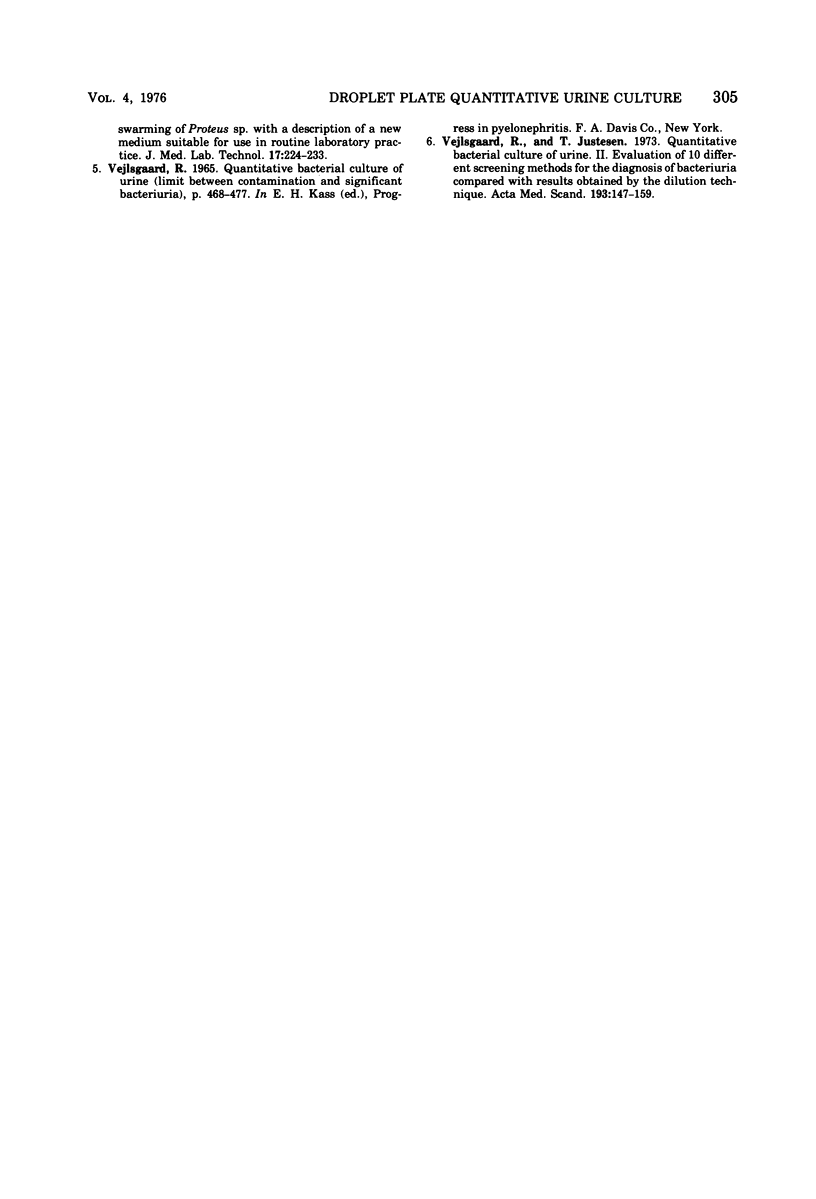
Images in this article
Selected References
These references are in PubMed. This may not be the complete list of references from this article.
- MALLMANN W. L., BROITMAN S. A. A surface plating technic for determining bacterial population of milk. Am J Public Health Nations Health. 1956 Aug;46(8):1018–1020. doi: 10.2105/ajph.46.8.1018. [DOI] [PMC free article] [PubMed] [Google Scholar]
- SANDYS G. H. A new method of preventing swarming of Proteus sp. with a description of a new medium suitable for use in routine laboratory practice. J Med Lab Technol. 1960 Oct;17:224–233. [PubMed] [Google Scholar]
- Vejlsgaard R., Justesen T. Quantitative bacterial culture of urine. II. Evaluation of 10 different screening methods for the diagnosis of bacteriuria compared with results obtained by the dilution technique. Acta Med Scand. 1973 Mar;193(3):147–159. [PubMed] [Google Scholar]




